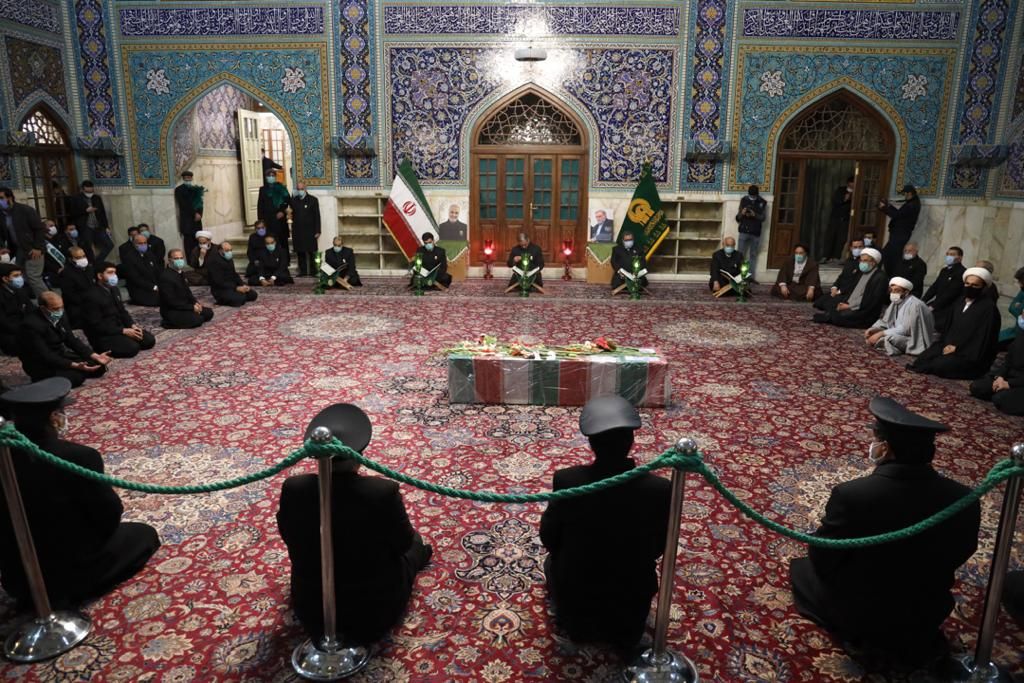The Assassination of the Head of the Military Part of Iran’s Nuclear Programme

What were the circumstances of Fakrizadeh’s assassination?
The successful attack on a guarded Fakrizadeh testifies to professional preparations behind it. Iranian media speculation about a suicide attack by armed opposition, the so-called People’s Mujahedin (MEK), or by Israeli drones remain not credible. His car was likely stopped by an explosive device and then came under intense small-arms fire, possibly by teams of attackers. It resembles previous, publicised and successful assassinations of Iran nuclear researchers (2007-2012) in which five people were killed. These were also attributed to Mossad, as was the destruction in July of a production line of uranium-enrichment centrifuges in Natanz.
What role did Fakrizadeh play in Iran’s nuclear programme?
In 1998-2003, Fakrizadeh served as a nuclear physicist and high-ranking officer of the Revolutionary Guards heading the most secret part of the programme—works on an implosion device for a nuclear warhead and its integration with the Shahab-3 ballistic missile. His team’s research was halted in 2003, likely due to Iranian fears of U.S. military intervention or a preventive war. After 2003, he was probably engaged in some other secret projects of Iran’s Ministry of Defence and Revolutionary Guards, as well as basic and theoretical research and training the next generation of Iranian nuclear scientists. Fakrizadeh no longer was working at any of his previous university faculties and was unavailable to inspectors of the International Atomic Energy Agency, which was tasked with investigating all aspects of nuclear research by Iran. According to unconfirmed reports, he was also present at the first thermonuclear test by North Korea in 2017.
What impact will the assassination have on Iran’s nuclear programme?
Fakrizadeh’s killing, similar to that of Gen. Qasem Soleimani by the CIA in Iraq in January suggests weak counter-intelligence and poor security by the Revolutionary Guards for a secret project involving key Iran leaders. Despite the assassination’s psychological and public effects, it is unlikely to have a stronger impact on Iran’s extensive scientific and industrial assets, collected experience and know-how, and realised nuclear potential. Since 2019, Iran has increased production and the level of uranium enrichment and introduced more effective centrifuges—all previously limited by the provisions of the Joint Comprehensive Plan of Action (JCPOA). These factors taken together portend an increasing risk associated with dual-use nuclear technologies of Iran.
What are the likely effects on Iranian-Israeli relations?
The Iranian threats of retaliation on Israel should be taken seriously, even if the former’s capabilities are limited. Iran has many instruments and deep experience with asymmetrical warfare against Israel but any intensive rocket or missile attacks from Syria or Lebanon would give Israel pretext to strike back against Hezbollah and weaken Iranian allies in Damascus. The potential for the loss of control in any military escalation between Iran and Israel involving civilian casualties would eliminate the chances for renewed Iran-U.S. negotiations. The COVID-19 pandemic also excludes the potential of attacks on Israeli tourists, as in 2011–2012 when terrorism was used in retaliation to a Mossad sabotage campaign. More likely are attacks on Israeli diplomatic missions or local centres of Judaism.
How might the assassination affect the chances for Iran-U.S. nuclear talks?
The assassination will stiffen Iran’s negotiating position during talks on a return of the U.S. to the JCPOA, which has been announced by President-elect Joe Biden. This might have been calculated by the Israelis, assuming they are behind the killing, to stop new compromises between the U.S. and Iran. However, even without Fakrizadeh’s killing, a U.S. return to the nuclear deal would not have been automatic and likely would have been at least 3–6 months from the new president’s inauguration in January. On the U.S. side, there is also the need to review and possibly alter sanctions introduced by the Trump administration, demands for additional requirements to the text of the nuclear deal (including a separate appendix with limits on Iran’s ballistic missile programme), and the general hostility to the JCPOA from Republicans, who might still control the Senate. On the Iran side, the nuclear negotiations might be complicated by the presidential elections in June 2021, expected to further strengthen conservative factions and the Revolutionary Guards, and reflecting the bad socio-economic situation of the country after the severity of the pandemic. These factors might result in additional Iranian economic expectations from the U.S. and EU in terms of the nuclear deal.


